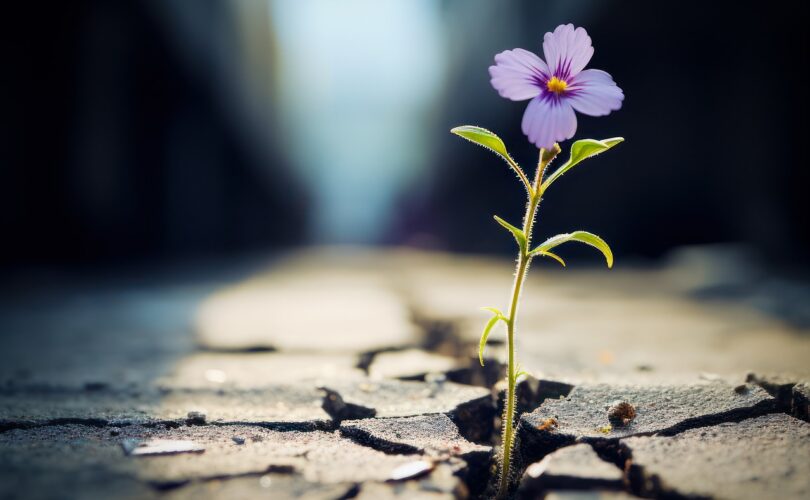Psychological resilience refers to a person’s psychological resilience to stress and challenges. It is a kind of protective mechanism that enables a person to keep track of things and remain capable of acting even in difficult situations. People with high resilience are more emotionally stable and have higher stamina.
The nature of life always strives towards the light as a plant stretches towards the sun.
Likewise, we all want to be happy and have a fulfilled life – but what a fulfilled life is is subjective.
The myth of Sisyphus is a well-known example of resilience. Sisyphus was a figure from Greek mythology who was condemned to roll a boulder up a steep mountain. But just before he reached the summit, the stone rolled down again and again, and Sisyphus had to start all over again.
Although Sisyphus is in a seemingly prospective situation, he did not give up. He accepted the challenge and found strength and meaning in moving the rock anew every day. Although the result was always the same, he accumulated incredible strength through constant repetition and perseverance.
This example shows how a person can be resilient despite great difficulties and seemingly hopeless situations. Sisyphus accepted his fate and continued to work every day to fulfill his task.
The lesson from the story of Sisyphus is that in difficult situations it is important not to give up and to accept what we cannot change. Instead, however, we can adopt a positive attitude and work on ourselves.
When we become aware of our strengths and strengths, we can prevail in difficult situations and build resilience.
Why is the development of resilience so important?
A high level of resilience has proven to be an important factor in the development of a for a happy and successful life.
People with high psychological resilience are better able to cope with stress and cope with challenging situations. They are more emotionally stable, have stronger self-esteem and can adapt to change more easily.
However, not all people build the same resilience. There are various factors that affect a person’s resilience. An important aspect is the experience of early childhood trauma or other traumatizations. The quality of social relationships and the existence of support systems can also have a positive effect on the development of resilience. In addition, personal factors such as optimism, self-efficacy and acceptance play an important role.
In conclusion, psychological resilience is an extraordinarily important skill in a person’s life. It enables to remain capable of acting despite difficult circumstances and to lead a fulfilled life.
My top 3 tips for more resilience day by day:
- Maintain an optimistic and self-caring perspective: A calm attitude can help manage pressure and challenges and navigate through difficult situations. See failures as an opportunity to grow!
2. Maintain social relationships: Social support is an important factor in developing resilience. Don’t expect to have to do everything on your own. Connect with families, friends, colleagues, and build your network so you can lean on them during difficult times.
3. Set realistic goals: Another important factor in developing resilience is to set realistic goals and work towards them gradually. It’s important to take on challenges, but there should also be some level of balance. Piece by piece progress will be made and resilience will be increased.
It should be noted that resilience is a process that requires time and effort to develop. However, these tips can serve as a starting point for building and maintaining resilience in everyday life.

